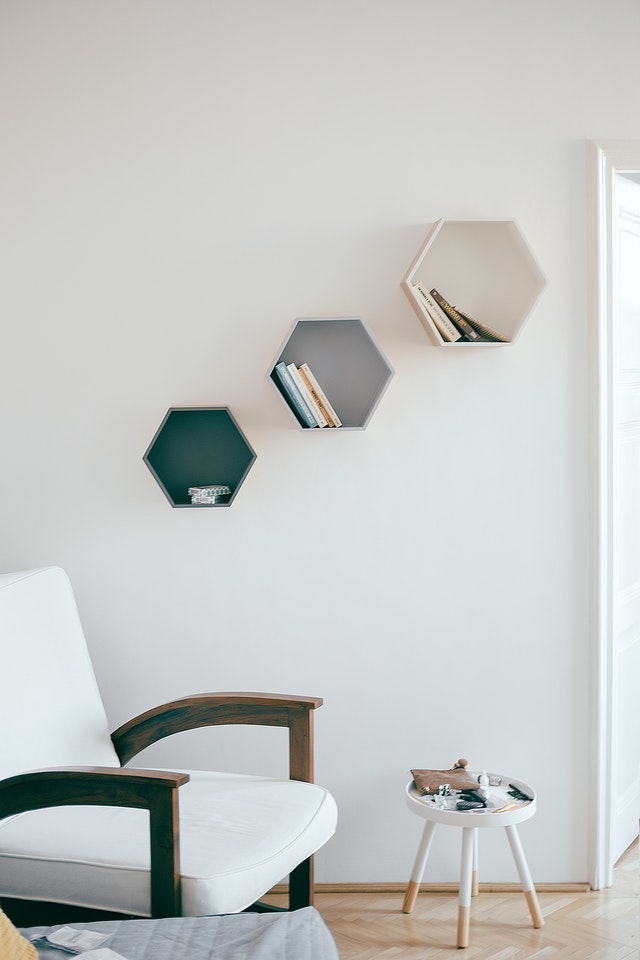
The belief that less is more is not a new concept. However, living with less may be the newest trend in alternative ways of living.
Minimalism is the practice of intentionally living with the least or minimum amount of stuff you need. The idea of taking on a minimalist lifestyle can be a little scary because it involves letting go of some of the possessions that have collected in your home and life.
The objective of a minimalist lifestyle is to reduce the pressure that the pursuit of material possessions places on our shoulders. When we clear away that clutter, our focus redirects onto areas of true importance in our lives.
Living this way has many benefits, some of which can be surprising. Here are just a handful of the amazing and life-changing benefits that an intentionally minimalist lifestyle can produce.
The Financial Benefits
One of the most obvious benefits of a minimalist lifestyle is that it saves money. Minimalism forces you to re-evaluate your relationship with shopping and your possessions. You focus more on what you need, rather than what you want. Over time, you’ll buy less. What’s more, you’ll likely realize that you were spending a lot of money on stuff that really didn’t contribute to your happiness.
You don’t have to become a monk living in a bare room, but many people who adopt a minimalist lifestyle are surprised by how little they truly need in terms of possessions.
Plus, when you stop spending your hard-earned dollars on unnecessary stuff, you’ll find that you have more money for other purposes—you might be able to pay off debt, save for the future, travel, or otherwise afford something you thought you couldn’t.
More and Less Time
While the phrase “more and less time” may seem like a contradiction, it makes total sense when you prioritize minimalism. When you’re not surrounded by stuff, you’ll find that you need less time to get ready to go places, for example. You don’t have to sort through a gigantic wardrobe, trying to decide what to wear. You may also find that cleaning your home is a breeze when you have fewer possessions.
In addition, you’ll have more time simply from shopping less. Many people underestimate how much time they spend shopping. For some, it’s a veritable hobby. Others use shopping as a distraction from their problems or a stress relief; this is where the phrase “retail therapy” comes from. While there is nothing wrong with shopping in itself, maybe you wish you had more time for any number of things, like family, friends, hobbies, or creative projects. Maybe you just want some extra time in your day to take a nap once in a while. Think about it: how much time do you spend shopping? What else could you do with that time?
A Tidier Home, Office, and Car
For many people, decluttering is one of the first things they do when they decide to adopt a more minimalist lifestyle. Yes, there may be some stress involved at this point. Most people have some emotions tied up in their possessions, and it can be hard to let things go. However, many people find that the simplicity of having less stuff makes for a happier home. Their interior space is much more organized and can be kept that way more easily as well.
Keep in mind that minimalism may mean different things to different people. A home that’s refreshingly minimalist for one person may be cold and bare for another. There’s no set number of possessions you must give away or any set-in-stone rules for minimalism, and you don’t have to live without your creature comforts, either. Instead, think of minimalism more in terms of mindfulness. It’s all about being intentional with your purchases, and resting the urge to shop just for shopping’s sake.
Health Benefits
You may find your mental health increasing as a result of becoming a minimalist. At its heart, minimalism is about rethinking the link between material possessions and happiness. Though we all know that “money doesn’t buy happiness,” our culture is still incredibly materialistic, perhaps because our economy depends on consumer spending. We expect to get some kind of gratification from buying a new car, item of clothing, or whatever else. However, this gratification is often fleeting. Over time, we often end up feeling dissatisfied.
This idea is supported by some research. According to an American Psychological Association interview with psychologist Tim Kasser, materialism is associated with lower levels of well-being and less social interpersonal behavior. The more people endorse materialist values, the more likely they were to experience depression, anxiety, and physical health issues like stomachaches and headaches.
In contrast, minimalism is a rejection of the materialist trap. It’s a way to rethink your relationship with your material possessions, clear away the physical clutter, and refocus on what truly makes you happy.